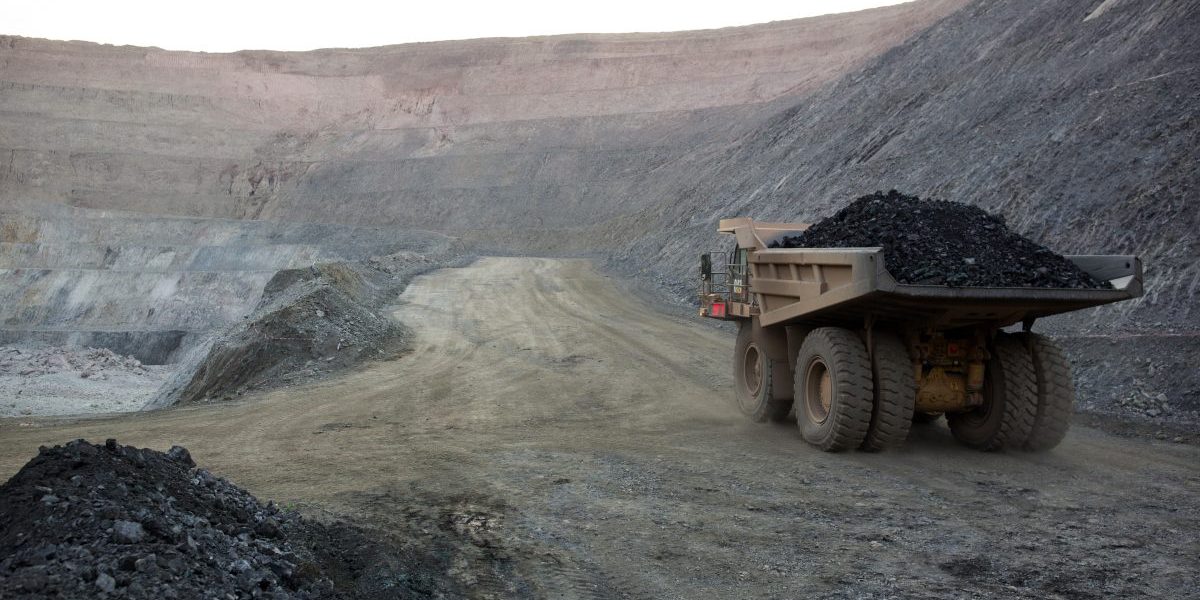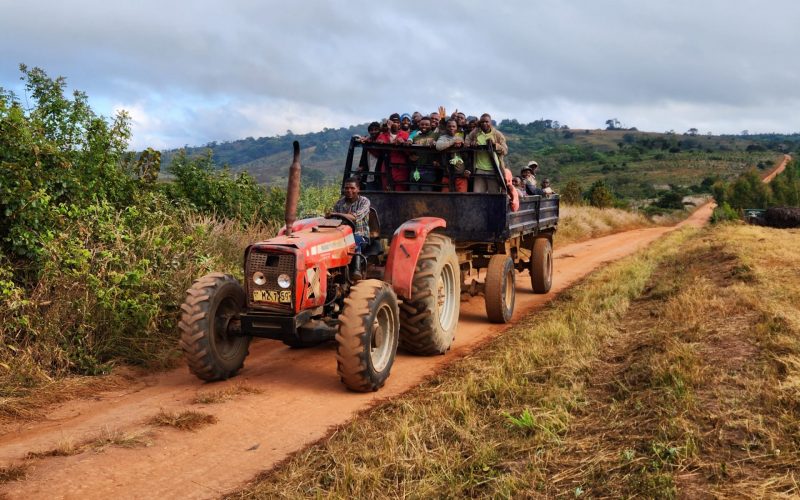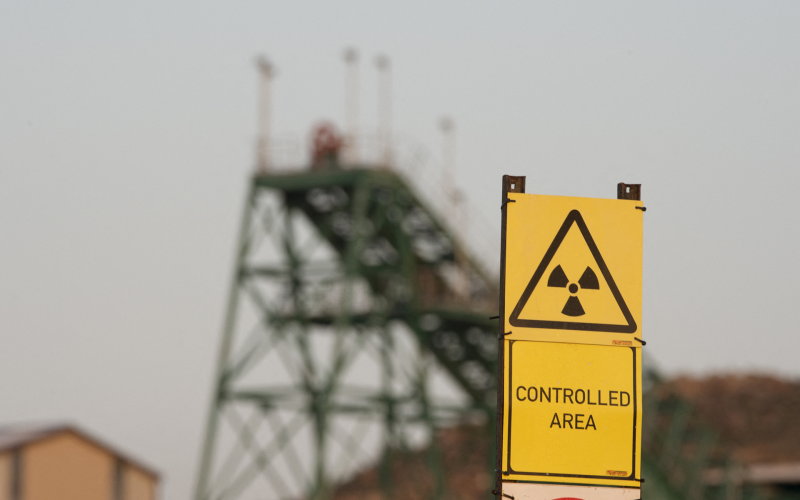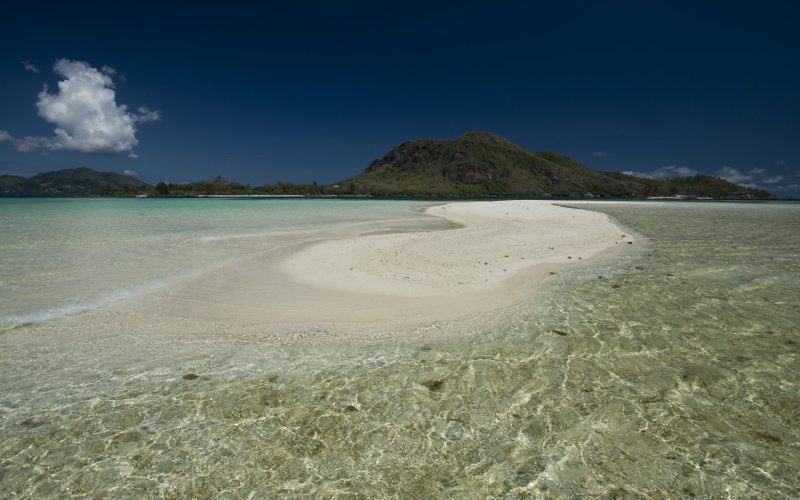Recommendations
- The EU Transparency Directive and Accounting Directive should address the issue of illicit outflows of tax revenue and royalties in the extractive sector, as these outflows further entrench inequality.
- The EU Raw Materials Initiative should address criticisms of the Joint Africa–EU Strategy (JAES) partnership and work towards a more equitable partnership between Europe and Africa.
- The African Mineral Development Centre should focus on addressing capacity gaps (particularly knowledge gaps) and government deficits in order to overcome the wealth inequality that arises from the mining sector.
- Further academic engagement is required on the conversion of knowledge into better legal and policy frameworks.
Executive summary
The trade relationship between Europe and Africa in terms of the extractive sector is characterised by inequitable resource interdependence, whereby Africa does not benefit fully from its natural resources. This briefing argues that a more equitable trade relationship is possible if emphasis is placed on developing better legal frameworks and governance in the extractive sector. This is particularly the case when legal and policy frameworks incorporate a normative exchange informed by ideas of ‘extractive justice’.
Introduction
The trade relationship between Europe and Africa in terms of extractives (mineral and energy resources) is characterised by resource interdependency. This interdependency has historically played out inequitably in terms of wealth accumulation, with Europe holding the dominant position.
Intercontinental cooperation and normative exchange can make a positive contribution to the moulding of law and policy. Furthermore, if normative exchange is guided by the concept of ‘extractive justice’, Africa and Europe may achieve a symbiotic relationship in the extractive industry. In order to bring to light how extractive justice can be used to inform cooperation and exchange, it is necessary to consider how current policy choices have played out and how imbalances have arisen that may disadvantage one or both regions.
The ‘symbiotic relationship’ between Europe and Africa in terms of natural resources is understood as a resource-based interdependency. Africa holds the natural resources that Europe (and other global economic centres) needs, and Europe has both a demand for these materials and the financial means to procure them. Evidence of this resource-based interdependency includes the fact that in 2012, about one-quarter of Europe’s oil demand was supplied by Africa.[1] Africa also meets most of the global demand for cobalt, phosphate, uranium and rare earth metals.[2]
The ‘symbiotic’ nature of this interdependency is, however, questionable in light of the gaping difference in resulting wealth accumulation in Africa and Europe. This can be attributed to the fact that such trade relationships are often vulnerable to the influence of money, power and knowledge. This may manifest in corporate actors’ exploiting weaknesses in regulation and governance at the expense of communities in producing states, leaving these communities destitute. Weak legal and policy frameworks, therefore, create an environment wherein corporations may become caught up in violence and conflict.
EU–Africa relations pertaining to mineral extraction
Historically, Africa is often portrayed as the victim of colonisation,[3] struggling to rise above this trauma. Certain academics have also pointed to the co-determinative nature of other historical influences.[4] Although much academic engagement explores Europe and Africa’s shared history and future in terms of economics and politics, [5] significantly less work has been done on the legal and regulatory frameworks required to ensure a truly symbiotic relationship between these regions.
Current-day relations between the two regions exist within the context of a multipolar world of changing alliances and diversifying partnerships.[6] China stands out as a new leading trade partner in terms of African resources. [7] These changes will have significant consequences for European–African cooperation in terms of natural resource exploitation. Overall, this non-hegemonic world means more developed nations will seek to exploit Africa’s natural resources.[8] This will necessitate a reconceptualisation of EU–African relations and therefore also the associated legal and policy frameworks.
Extractive-related conflicts cost mining companies millions of dollars and have been on the increase over the last 15 years.[9] These conflicts are driven by structural issues such as poorly designed mineral development strategies and inadequate community participation in decision-making processes.[10] In order to circumvent resource-related conflicts, legal and policy frameworks must be in line with principles of extractive justice, a concept that encompasses procedural, distributive and recognitional justice.
Policy tools
In pursuit of the operationalisation of extractive justice, the policy tools available include EU directives and initiatives. In Africa, key principles and objectives that address the relationship between mining and development are outlined in the Africa Mining Vision (AMV).
The EU Transparency Directive and the EU Accounting Directive have made progress in addressing corruption and some conflict-causing structural factors.[11] Yet these directives have failed to address the issue of illicit outflows of tax revenue.[12]
The EU Raw Materials Initiative (RMI) seeks to level the playing field in terms of access to resources in developing countries through the Joint Africa–EU Strategy (JAES).[13] The RMI and the JAES have, however, been criticised for being superficial, as relationships between the two regions remain unbalanced, with Europe still in the dominant position.[14]
The AMV represents the African region’s vision and objectives relating to the contribution of mineral resources to the continent’s development.[15] The African Mining and Development Centre (AMDC), a multi-agency centre tasked with coordinating the implementation of the AMV, seeks to ‘ensure mineral endowments are used for the benefit and prosperity of all’.[16]
The AMDC has faced several challenges, most notably the inequality of wealth that arises from the mining sector. [17] To address these challenges, a commitment to the long-term economic sustainability of communities and significant capacity building and re-skilling is required. Furthermore, African governments must focus on infrastructural considerations that catalyse independent economic growth. Overall, the challenges the above policy tools face underline the need to address gaps in capacity (knowledge gaps) and deficits in governance.[18]
Resource interdependency and ‘extractive justice’
For both Europe and Africa to equitably benefit from Africa’s resources, it is vital to emphasise the need for values that underpin efforts to address these gaps and deficits. Importantly, the notion of ‘extractive justice’ takes on board various aspects of global justice in balancing competing interests.
‘Extractive justice’ acknowledges aspects of distributive justice, recognitional justice and procedural justice. Distributive justice focuses reversing inequalities and sharing benefits through community participation. Recognitional justice, in the context of extractives, argues that reversing inequalities is not enough and that recognising a social group’s ‘way of life’ is equally important.[19] The concerns of recognitional justice relate specifically to extractive-related conflicts. Finally, procedural justice deals with the processes underlying decision-making. In this sense, the manner in which decisions are made informs who makes and defines rules, whose interests are reflected in decision-making processes, and whether actors and instruments are impartial. [20]
Conclusion
In working towards an understanding of resource interdependency, certain questions must be considered. At a fundamental level, the role of the state as a regulatory agency vis-à-vis private mining interests should be considered, given the central role that the governance framework, including regulatory environment, can play in promoting extractive justice.
Secondly, in forming legal and policy frameworks that promote extractive justice and underpin shared values, democratic values should play a pivotal role. Intrinsic to our understanding of democracy is accountability and transparency – concepts that are disputed in terms of conceptualisation, implementation and the actors involved.[21]
Finally, the key features of a legal framework that seeks to increase investment in a sustainable, ethical manner must be examined.
Overall, although there is engagement on the topic of wealth imbalances between Africa and Europe with regard to minerals, oil and gas, there is still a disconnect between solutions pursued and knowledge and expertise. Further efforts are required to effectively convert knowledge into improved legal and policy frameworks that benefit both regions.
Footnotes
[1] Klare MT, ‘Europe’s resource dilemma: Escaping the dependency trap’, Friends of Europe, 21 March 2014, https://www.friendsof europe.org/greener-europe/europes-resource-dilemma-escaping-the-dependency-trap, accessed 20 August 2018.
[2] Burger S, ‘After 2017 consolidation, mining to pre-empt future metals demand – EY’, Mining Weekly, 20 February 2018, http://www.miningweekly.com/article/after-2017-consolidation-mining-to-pre-empt-future-metals-demand-ey-2018-02-20/ rep_id:3650, accessed 10 September 2018. Also see KPMG, ‘Mining in Africa: Towards 2020’, 2013, www.foresightfordevelopment. org/sobipro/download-file/46-1289/54, accessed 10 September 2018; Winde F et al., ‘Uranium from Africa – An overview on past and current mining activities: Re-appraising associated risks and chances in a global context’, Journal of African Earth Sciences, 129, 2017, p. 772; Chamber of Mines of South Africa, Facts & Figures 2017, June 2018, http://www.mineralscouncil.org.za/industry-news/ publications/facts-and-figures, accessed 10 September 2018.
[3] See, in particular, W Rodney’s How Europe Underdeveloped Africa and his remark that ‘[t]he only positive development in colonialism was when it ended’. Rodney W, How Europe Underdeveloped Africa. Washington DC: Howard University Press, 1981, p. 161. See also Boahen AA, African Perspectives on European Colonialism, 2nd edition. Brooklyn: Diasporic Africa Press, 2011.
[4] Ochunu M, Colonialism By Proxy: Hausa Imperial Agents and Middle Belt Consciousness in Nigeria. Bloomington: Indiana University Press, 2014, p. 11; Ludden D, Reading Subaltern Studies: Critical History, Contested Meaning and the Globalization of South Asia. Delhi: Anthem Press, 2002, p. 268.
[5] See, for example, Mailafia O, Europe and Economic Reform in Africa: Structural Adjustment and Economic Diplomacy. Abingdon: Routledge, 2005; Mangala J (ed.), Africa and the European Union: A Strategic Partnership. London: Palgrave Macmillan, 2013; Adebajo A & K Whiteman (eds), The EU and Africa: From Eurafrique to Afro-Europa. London: Chatham House, 2012; Murithi T, Handbook of Africa’s International Relations. Abingdon: Routledge, 2013.
[6] Vittorini S & D Harris, ‘New topographies of power’, in Dietz T et al., African Engagements – Africa Negotiating an Emerging Multipolar World. Leiden: Brill, 2011, p. 293; Stephan H, ‘Introduction’, in Stephan H & M Power (eds), The Scramble for Africa in the 21st Century, 2nd edition. Cape Town: Renaissance Press, 2012, p. 14; Fiorentini R & G Montani, The European Union and Supranational Political Economy. Abingdon: Routledge, 2014, p. 239; Engel U & M Ramos (eds), African Dynamics in a Multipolar World. Leiden: Brill, 2013, p. 197; Hiro D, After Empire: The Birth of the Multipolar World. Paris: Nation Books, 2012.
[7] In 2006, China was the third largest trader with Africa. The China–Africa Business Council also promotes relations between Africa and China, and is supported and underwritten by the UN. See Guerrero D & F Manji (eds), China’s New Role in Africa and the South: A Search for a New Perspective. Cape Town: Focus on the Global South, 2008, p. 93; Van Dijk MP (ed.), The New Presence of China in Africa. Amsterdam: Amsterdam University Press, 2009, p. 26; Wang J-Y, ‘What Drives China’s Growing Role in Africa?’, IMF (International Monetary Fund) Working Paper WP/07/211, 2007, p. 11; Barton B & J Ming (eds), China and the European Union in Africa: Partners or Competitors?, Farnham: Ashgate, 2013, p. 32.
[8] Stephan H, op. cit., p. 15; Carmody P, The New Scramble for Africa. Cambridge & Maiden: Polity Press, 2011, pp. 1–2.
[9] ICMM (International Council on Mining & Metals), Research on Company-Community Conflict, 2015, accessed 17 August 2018. See also Andrews T et al., The Rise in Conflict Associated with Mining Operations: What Lies Beneath?, CIRDI (Canadian International Resources and Development Institute), 2017, p. 11, https://cirdi.ca/wp-content/uploads/2017/06/Conflict-Full-Layout-060817.pdf, accessed 16 May 2019; Davis R & D Franks, ‘Costs of Company-Community Conflict in the Extractive Sector’, Corporate Social Responsibility Initiative Report 66. Cambridge: Harvard Kennedy School, 2014.
[10] Andrews T et al., op. cit., p. 11.
[11] EU, Directive 2013/34/EU, Chapter 10 [Accounting Directive], accessed 9 September 2018. See also EU, Directive 2013/50/EU [Transparency Directive], accessed 9 September 2018.
[12] Pogge T & K Mehta (eds), Global Tax Fairness. Oxford: Oxford University Press, 2016, pp. 4–6.
[13] Nowakowska M, ‘Raw Materials Strategy: EU Perspective on Translating Mineral Resource Wealth into Sustainable Development’, Paper presented at Euromed Workshop on Raw Materials, Brussels, 15–16 October 2012, accessed 16 May 2019.
[14] TNI (Transnational Institute), ‘Relations between Africa and the European Union in the 21st Century: Civil Society Declaration to the Ministers of Foreign Affairs of SADC and the EU Meeting in Gaborone, 29–30 November 2000’, accessed 20 August 2018.
[15] AU, ‘Africa Mining Vision’, 2009; AU, ‘Agenda 2063’, 2015, pp. 107–108.
[16] See UNECA (UN Economic Commission for Africa), ‘About AMDC’, https://www.uneca.org/pages/about-amdc, accessed 10 September 2018.
[17] Mostert H & H van Niekerk, ‘Disadvantage, fairness, and power crises in Africa’, in Omorogbe Y & A Ordor (eds), Ending Africa’s Energy Deficit and the Law. Oxford: Oxford University Press, 2018, p. 57; Darimani A, ‘Analysis of governance in the Ghanaian mining sector’, in Afful-Koomson T & K Owusu Asubonteng (eds), Collaborative Governance in Extractive Industries in Africa. Accra: Institute for Natural Resources in Africa, 2015, p. 89.
[18] AU, ‘African Mining Vision’, 2009, p. 13.
[19] Honneth A, The Struggle for Recognition: The Moral Grammar of Social Conflict. Cambridge MA: MIT Press, 1996, p. x.
[20] Sovacool BK & MH Dworkin, Global Energy Justice: Problems, Principles, and Practices. Cambridge: Cambridge University Press, 2014, p. 208.
[21] Hackenesch C & S Koch, ‘Partnerschaften sind da, der politische Wille fehlt’, Zeit Online, 31 October 2013, accessed 16 April 2015.
Acknowledgment
This policy briefing is largely drawn from an article in the South African Journal of International Affairs entitled ‘Towards extractive justice: Europe, Africa and the pressures of resource dependency’. The policy briefing and journal article are outputs of the project ‘The European Union’s Normative Role in African Extractives Governance’, which is co-funded by the Erasmus+ Programme of the EU.









